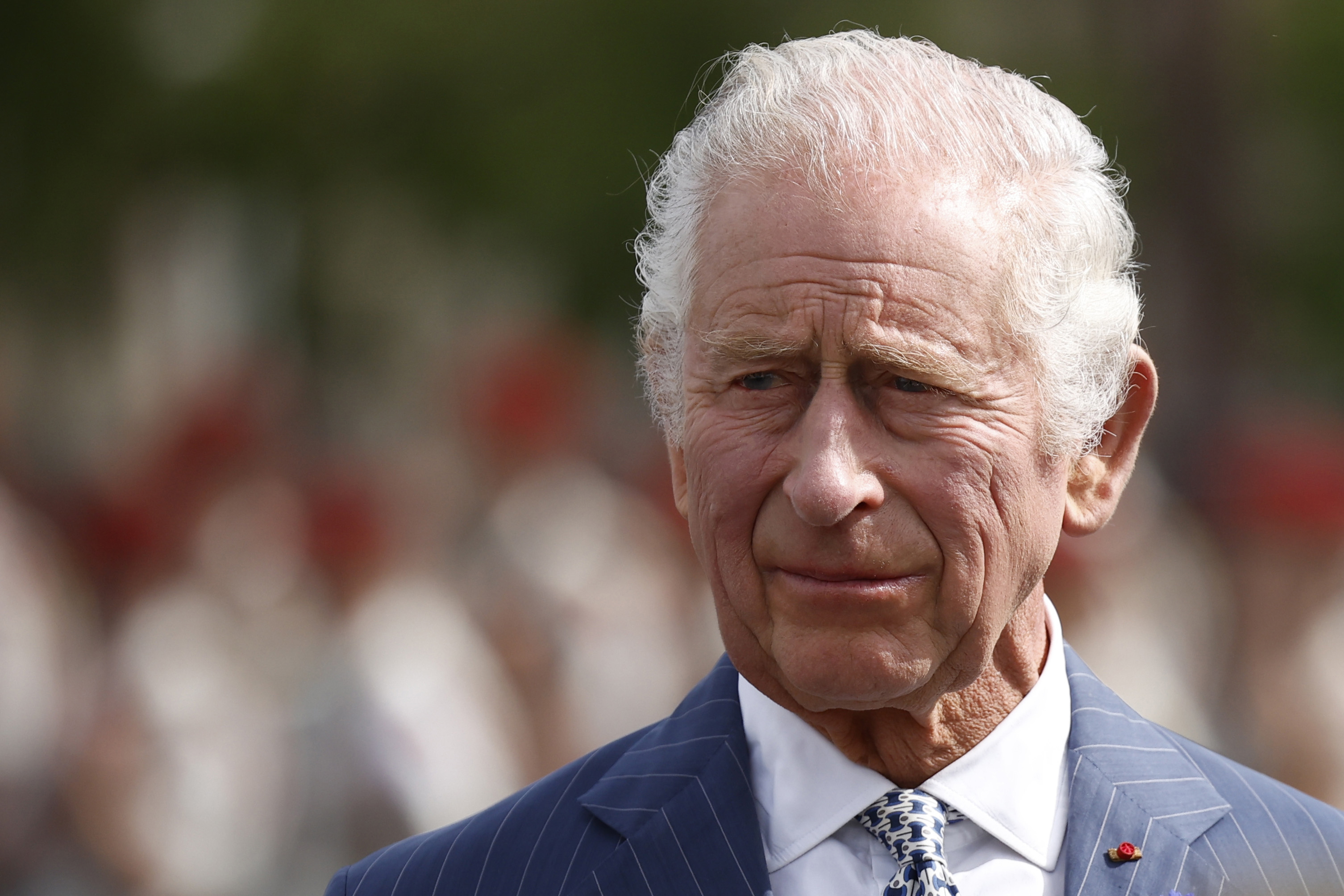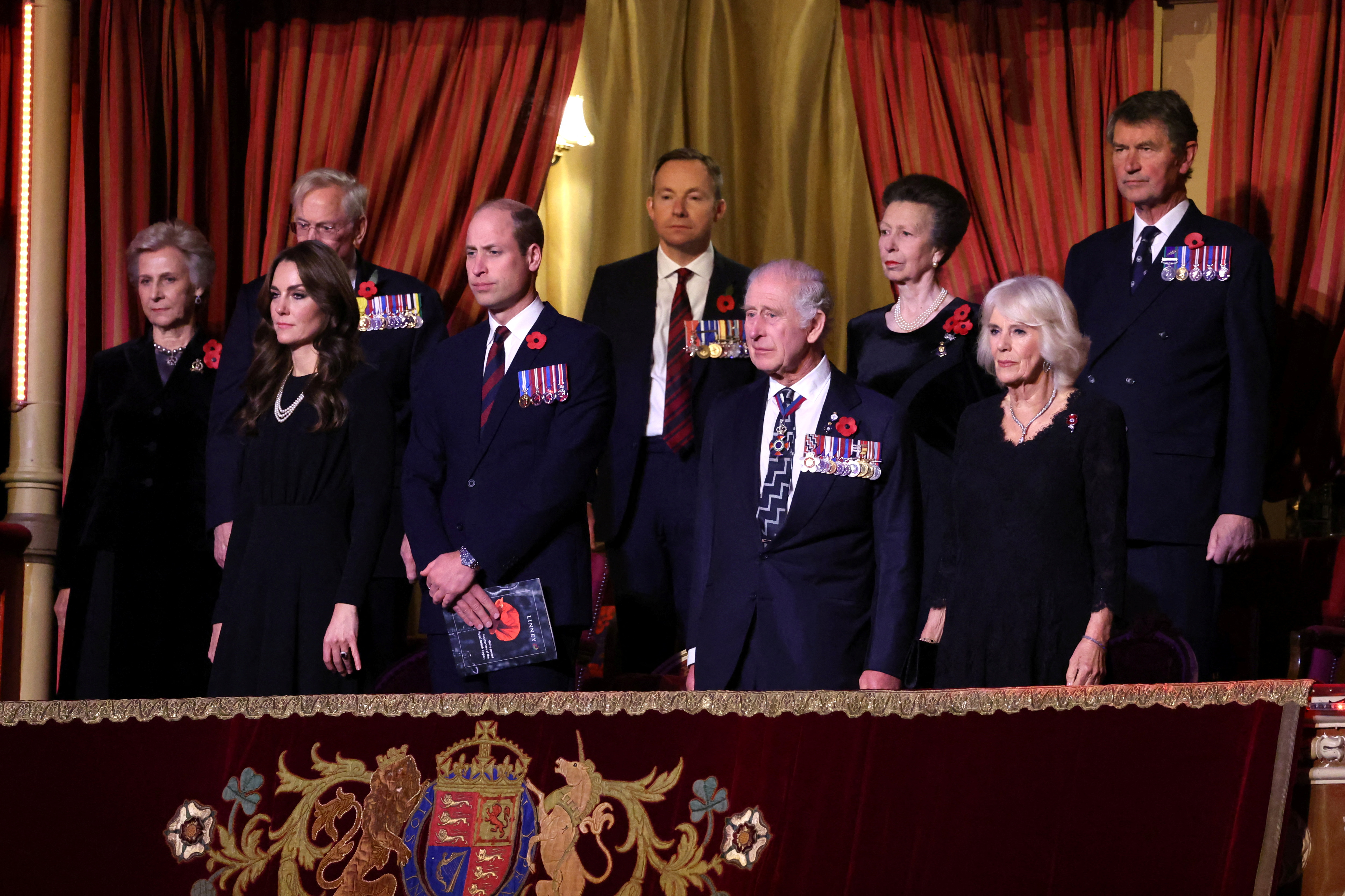
The United Kingdom’s King Charles III has been diagnosed with a form of cancer, and will postpone public-facing duties, Buckingham Palace has announced.
King Charles recently spent three nights in hospital to undergo treatment for an enlarged prostate. It is understood that this separate issue was discovered during that procedure.
Here is what’s known about King Charles’s condition and what this means for the royal family.
Which type of cancer does King Charles have?
In Monday’s announcement, palace officials did not specify which type of cancer the king has or how serious his condition is. A Royal source told Reuters that it was not prostate cancer.
The palace said only that the king has commenced a schedule of regular treatments, “during which time [he] has been advised by doctors to postpone public-facing duties”.
“Throughout this period, his Majesty will continue to undertake State business and official paperwork as usual,” the palace added.
Buckingham Palace also said the king had decided to be open about having been diagnosed with cancer to “prevent speculation and in the hope it may assist public understanding for all those around the world who are affected by cancer”.
The king’s cancer revelation comes as Catherine, Princess of Wales and wife to the heir to the throne, William, also recuperates at home after spending two weeks in hospital after planned abdominal surgery for an unspecified but non-cancerous condition.
A statement from Buckingham Palace: https://t.co/zmYuaWBKw6
📷 Samir Hussein pic.twitter.com/xypBLHHQJb
— The Royal Family (@RoyalFamily) February 5, 2024
When did King Charles’s health problems start?
The UK was first alerted to Charles’s health problems in January when Buckingham Palace announced he was starting a “corrective procedure” for an enlarged prostate.
Officials said the condition was benign, though the king cancelled engagements and was urged to rest before the procedure.
An enlarged prostate is common in men over the age of 50 and affects thousands in the UK. The condition affects how one urinates and does not usually present a serious health problem. It is not cancer and does not lead to an increased risk of developing prostate cancer.
At that time, palace officials said the king had decided to publicise details about his condition in an effort to encourage other men to have their prostates checked in line with public health advice.
As a result of this treatment, the king spent three nights at the London Clinic and was seen in public again for the first time on Sunday as he waved to well-wishers on his way to a morning church service in Norfolk.
Charles spent the night at his Clarence House home near Buckingham Palace on Monday after beginning a series of outpatient treatments.
What happens if King Charles cannot continue with his duties?
For now, this is not an issue. There are, however, constitutional mechanisms in place that kick in if Charles reaches a point where he cannot carry out his duties as king.
Two counsellors of state can be appointed to act on the king’s behalf through a Letter Patent, a form of grant by the British sovereign.
The counsellors of state would be authorised to carry out most of the official duties of the king, including attending Privy Council meetings, signing routine documents and receiving new ambassadors. However, they would not be able to appoint a prime minister nor dissolve parliament unless the king requested that they do so.
By law, counsellors of state are selected from a group including the king’s spouse and people in the line of succession over the age of 21.
Currently, the primary order of succession to the throne includes 24 people, both adults and children.
Including all the children, at the top of the line is William, Prince of Wales and the eldest son of Charles and the late Princess Diana. His three children, Prince George, Princess Charlotte and Prince Louis, follow him in the line of succession. When Louis was born in 2018, the rule of primogeniture was abolished. This means from 2018 onwards, the birth of a royal boy cannot displace a female member of the family in the line of succession.
Prince Harry, the younger son of Charles and Diana, who has relinquished his royal duties but retains his place in line to the throne, and his two children follow next. After them comes Prince Andrew, Charles’s younger brother and the second eldest son of Queen Elizabeth II and Prince Philip, followed by his children, Princesses Beatrice and Eugenie. Others in line to the throne include Princess Anne, Charles’s sister, and Prince Edward, his youngest brother.
However, the UK press reported in January that secret provisions had been made to prevent either Prince Harry, who has fallen from favour along with his wife, Meghan Markle, or Prince Andrew, who has been caught up in the Jeffrey Epstein scandal, from carrying out official duties on behalf of the king.
Who will have to stand in for Charles at royal engagements?
According to Richard Fitzwilliams, a commentator on the royal family, a large share of the responsibility for Charles’s public-facing duties will fall to the prince of Wales and Queen Camilla.
However, the king will continue carrying out his constitutional duties, including state business and official paperwork.
“The prince of Wales will carry out his first duty on the 7th of February,” Fitzwilliams told Al Jazeera. On Wednesday, William will attend the London’s Air Ambulance Charity Gala Dinner. The BBC reported that he would also carry out an investiture at Windsor Castle earlier in the day.
William, 41, prince of Wales and the heir to the throne, postponed his own engagements to help look after the couple’s three children after his wife, Catherine’s surgery.
“There are far fewer members of the royal family able to carry out engagements, I mean we now have the king with a cancer diagnosis, we have the princess of Wales most unfortunately unable to perform duties for a number of weeks,” Fitzwilliams said.
“There is no doubt, a lot will rest on both the prince of Wales and, of course, Queen Camilla who has been quietly but conscientiously continuing her duties, but essentially we will have to wait and see what future bulletins show and hope that the king will be back and able to perform his duties very soon,” he added.
William’s younger brother, Prince Harry, is returning to the UK to see his father, after reportedly being seen at Los Angeles airport last night.

Has King Charles had other health issues?
Besides the treatment for enlarged prostate Charles has had other minor health problems.
Charles had COVID twice, but officials said that he only suffered mild symptoms each time.
He isolated at home in Scotland in March 2020, during the early days of the pandemic in the UK and before vaccines were available.
There has long been speculation about Charles’s swollen fingers, with some suggesting they may be due to fluid build-up, arthritis or other conditions. In 2008, he had a non-cancerous growth removed from the bridge of his nose.
He had a hernia operation at a private hospital in 2003, when he joked “Hernia today, gone tomorrow” to waiting reporters when he was discharged the next day.
Is cancer prevalent in the Royal family?
There has been a history of cancer in Charles’s family.
King George VI, the father of the late Queen Elizabeth II and the 72nd anniversary of whose death it is today, had lung cancer. Edward VIII, King George’s brother, suffered from throat cancer.
The future King Charles III with his doting grandfather, King George VI, who died at Sandringham 72 years ago today. #GetWellSoon pic.twitter.com/ktxeXHeTWq
— Majesty Magazine & Joe Little (@MajestyMagazine) February 6, 2024
How leaders and dignitaries reacted to the news?
British Prime Minister Rishi Sunak sent a message wishing the king “a full and a speedy recovery”.
“I have no doubt he’ll be back to full strength in no time and I know the whole country will be wishing him well,” Sunak said.
President Joe Biden joined Sunak and wished King Charles a swift recovery.
“Navigating a cancer diagnosis, treatment and survivorship takes hope and absolute courage. Jill and I join the people of the United Kingdom in praying that His Majesty experiences a swift and full recovery,” Biden said.
Navigating a cancer diagnosis, treatment, and survivorship takes hope and absolute courage.
Jill and I join the people of the United Kingdom in praying that His Majesty experiences a swift and full recovery.
— President Biden (@POTUS) February 5, 2024
Former US President Donald Trump referred to him as a “wonderful man”.
“King Charles has cancer. He is a wonderful man, who I got to know well during my presidency, and we all pray that he has a fast and full recovery!” Trump said.
Separately, Canadian Prime Minister Justin Trudeau also sent his best wishes.
“I, like Canadians across the country and people around the world, am thinking of His Majesty King Charles III as he undergoes treatment for cancer. We’re sending him our very best wishes – and hoping for a fast and full recovery,” Trudeau said.
“The thoughts of all Australians are with King Charles and his family. We wish him very much a speedy recovery. I’ll be sending a message to the palace this morning and we hope that King Charles has a speedy recovery and a return to his duties as soon as possible,” Australian Prime Minister Anthony Albanese explained.
Meanwhile, Ireland’s president, Michael Higgins, said he was very concerned and sent his best wishes on behalf of the people of Ireland to King Charles for his medical treatment and for his full recovery, as well as to Queen Camilla and his family.
London Mayor Sadiq Khan also sent his sympathies.
On behalf of Londoners I wish His Majesty a speedy and full recovery.
I look forward to his return to full health as soon as possible. https://t.co/FXZHNfOJ5s
— Sadiq Khan (@SadiqKhan) February 5, 2024







